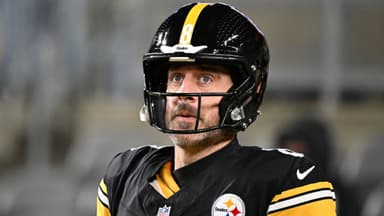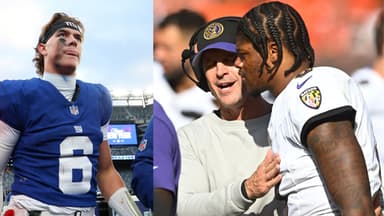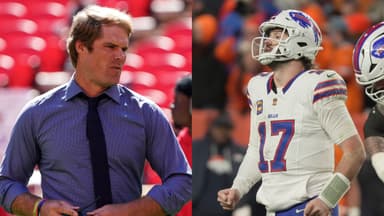If you’ve ever wondered why NFL contracts rarely include the kind of guaranteed money seen in the NBA, NHL, or MLB, there’s a reason—and it goes far beyond just business norms. According to the NFL Players Association (NFLPA), the real reason is collusion among NFL team owners. And after a thorough investigation, it turns out the union was right all along.
Advertisement
A 61-page report—based on testimonies from players, roughly 25% of team owners, NFL Commissioner Roger Goodell, and senior NFLPA officials—confirmed that collusion did occur. However, the league and the union managed to keep the report hidden from public view. That is, until someone managed to obtain it, and its contents were explosive.
The report exposed the existence of a secretive body known as the NFL Management Council (NFL MC)—a group tasked with advising all 32 team owners on league-wide business decisions. It was through this council that the owners coordinated a response to a contract that had shaken the NFL to its core.
In March 2022, during the NFL’s annual meeting in Palm Beach—an event attended by owners, coaches, agents, and media—a closed-door meeting took place in the shadows. This meeting followed the Cleveland Browns’ unprecedented move to give Deshaun Watson a five-year, $230 million fully guaranteed contract—the first of its kind in NFL history.
Watson’s deal sent shockwaves across the league. The NFLPA had long fought for fully guaranteed contracts for players, and this agreement was seen as a potential breakthrough. But the owners viewed it as a threat to the status quo. The Management Council quickly mobilized, issuing ‘guidance’ to teams on how to prevent this from becoming the new standard.
The fallout was swift and widespread. The most obvious victims were quarterbacks Lamar Jackson, Russell Wilson, and Kyler Murray, all of whom signed major extensions later in 2022. None received fully guaranteed deals. But the damage didn’t stop there. According to the report, more than 600 players were ultimately affected by the coordinated effort to suppress guaranteed money in contracts.
This revelation paints a troubling picture of behind-the-scenes power plays and a deliberate effort by NFL ownership to limit player leverage and compensation, despite the league’s ever-growing revenue.
However, players may not be the only ones impacted by collusion, at least not according to NFL analyst Mike Florio. He believes coaches are also on the receiving end of it. According to Florio, NFL owners have long worked behind the scenes to suppress the value of coaching contracts, even though coaching pay isn’t subject to the league’s salary cap.
Florio suggests that, through informal agreements and shared practices, owners are effectively colluding to ensure no team overpays for coaches. And he claims this isn’t a recent development—it’s been going on for decades. But what evidence supports this theory?
Florio revealed that he received messages from league insiders indicating that the NFL had been collecting and sharing detailed salary data across all positions, not just for head coaches and general managers, but also for assistants, scouts, strength coaches, and even team dietitians. These internal reports would typically list the average, highest, and lowest salaries for each role, helping teams maintain consistency—or, perhaps, suppress upward trends.
However, this year, something changed. The league reportedly refused to share the salary report, citing concerns that doing so could expose them to legal risk and potential lawsuits. Florio believes that silence speaks volumes. If there was nothing to hide, why stop sharing the data now?
“If these teams are colluding as it relates to the players, that’s not the end of it. There are other areas where they may collude. I’m a firm believer that they’ve been colluding as it relates to coaching pay for decades. They have held down what coaches make. There is no salary cap, and there is no salary floor. So they lock arms and they make sure no one goes crazy and pays a coach $40 million a year.”
The arbitrator who reviewed the collusion case ultimately found insufficient evidence to impose penalties on the NFL or its owners. Despite what many considered a smoking gun, the league and its owners escaped without consequence.
That said, the roughly 600 veteran players, denied the chance at fully guaranteed contracts due to the league’s behind-the-scenes maneuvering, may still have legal avenues to explore. But realistically, it’s unlikely that much will come of it.
The owners hold the power—they control the money, the league’s structure, and the decision-making apparatus. They’re so financially insulated that, if pushed, they could shut down operations for a year and survive the fallout. The players, on the other hand, don’t have that luxury. The balance of power remains firmly tilted in favor of ownership.








